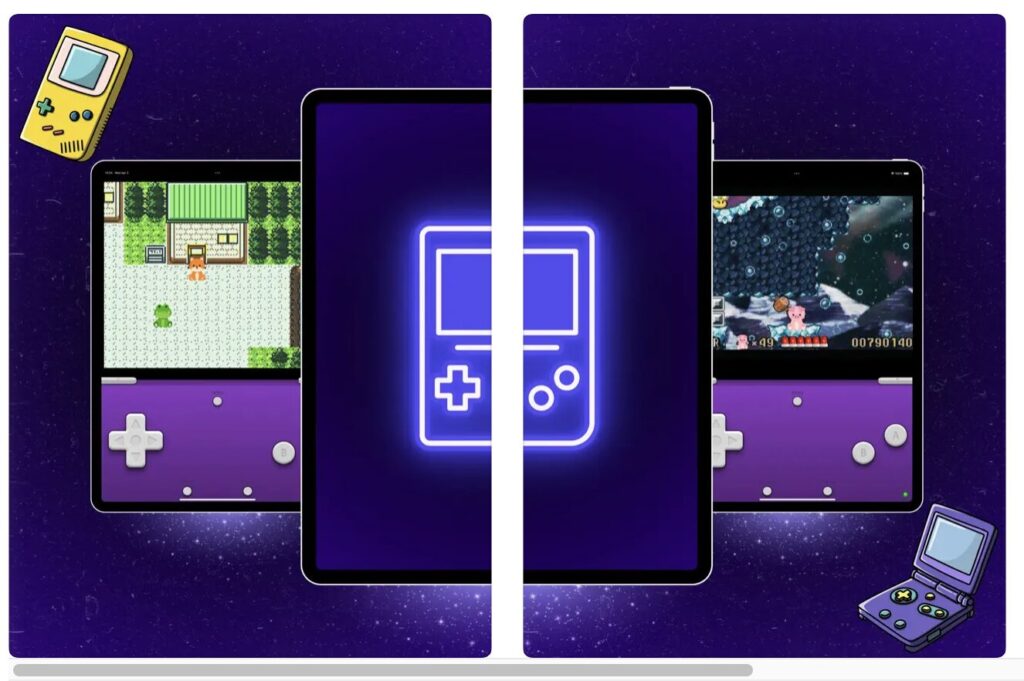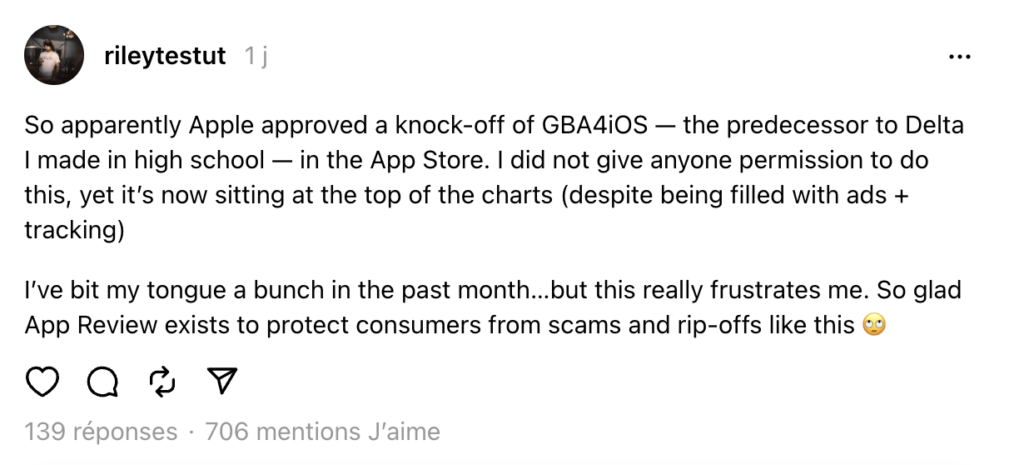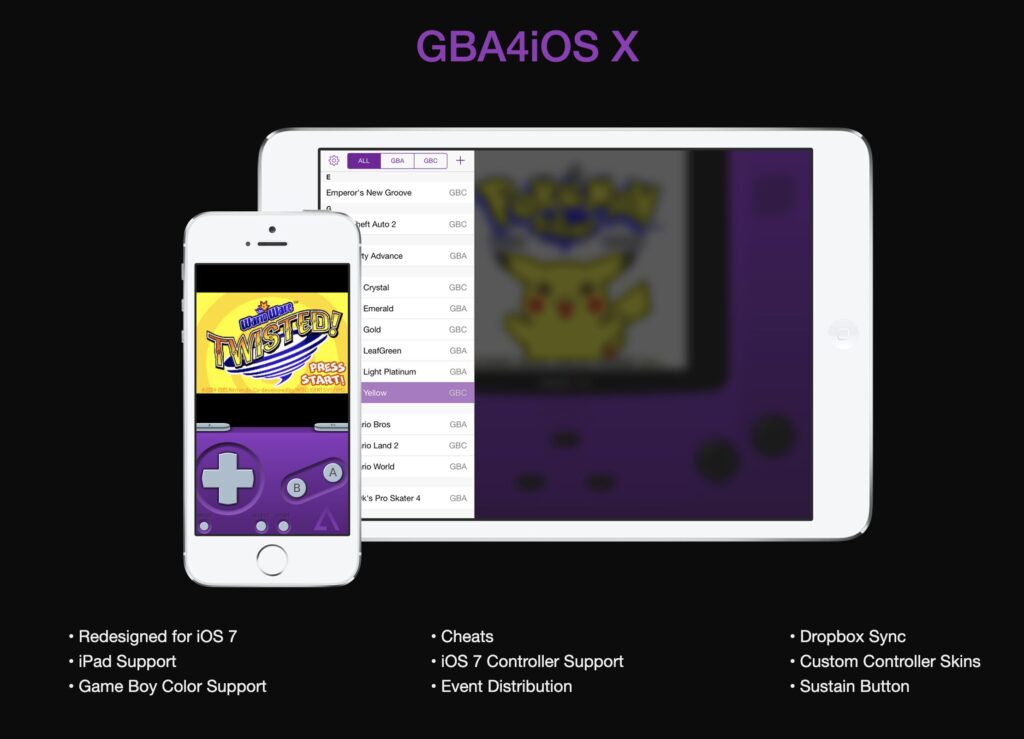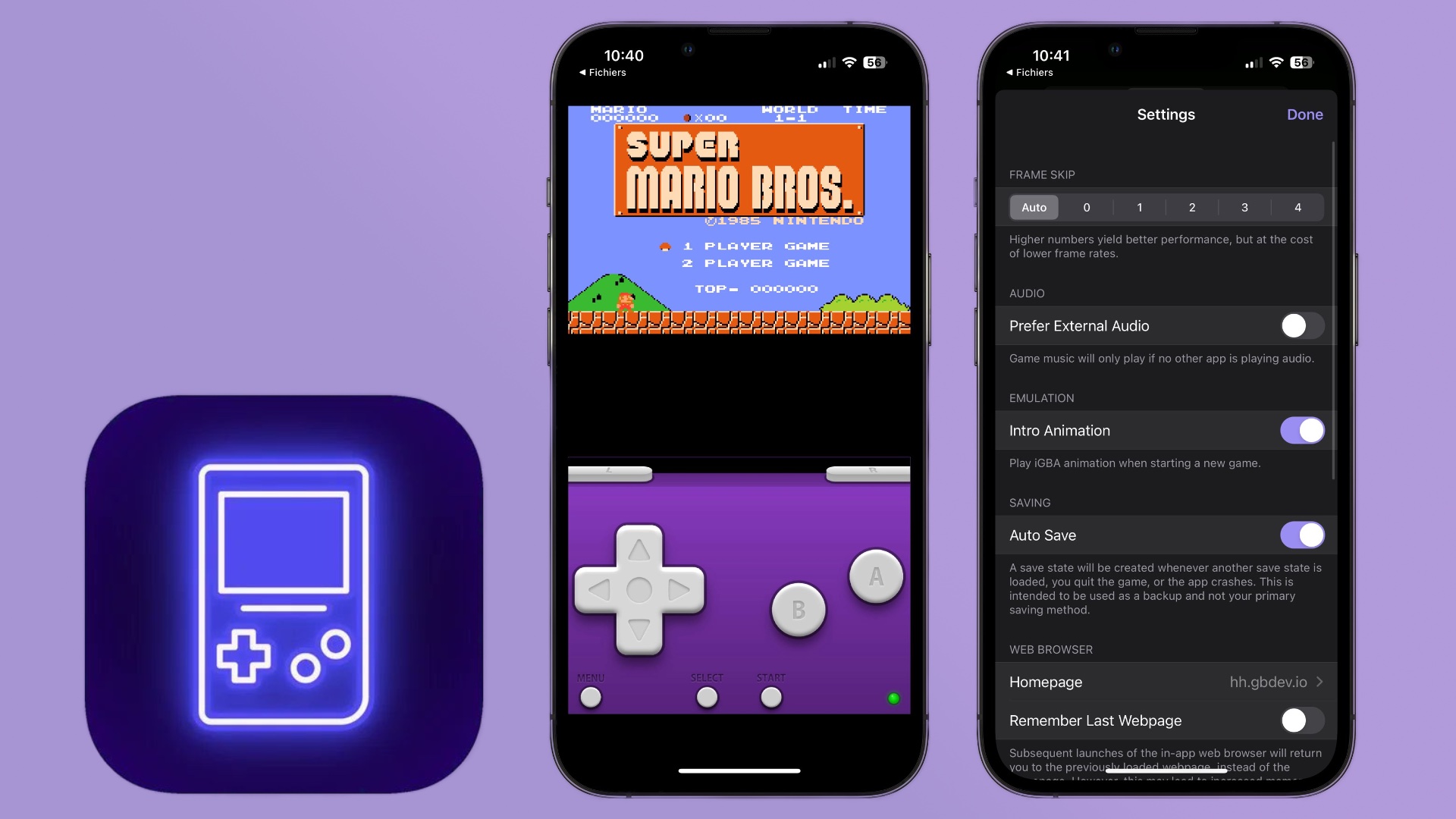Apple has allowed emulators on iPhone since the beginning of April 2024. The iGBA application hoped to awaken gamers' memories, but was deleted by Apple after a weekend. At issue: vulgar plagiarism.
Emulators on the App Store are off to a bad start… After 16 years of resistance, Apple has finally authorized software developers capable of transforming iPhones into Game Boy, Wii or PSP to market their applications on the App Store. Why now ? Because the European Digital Markets Act has pushed it to relax its rules, the United States is on its back and Apple is gradually changing its rigor. The brand undoubtedly imagines that players will flock to emulators in alternative stores and therefore prefers to offer them itself.
Advertisement
On April 13, the iGBA emulator appeared on the App Store. Compatible with iOS and iPadOS, it allowed you to import ROMs and play cult Game Boy Advance titles. Two days later, Apple removed it from the App Store.
A plagiarism of GBA4iOS
The real question is not why Apple removed iGBA, but why Apple allowed iGBA in the first place. The brand could not ignore the fact that this software would be a great success, as the first emulator in the App Store. Its validators should have been even more careful than usual, but the software has been published and downloaded thousands of times.

First problem: iGBA is filled with advertisements. When first started, everything suggests that its developer knew that the application was destined to be deleted and that he therefore needed to make as much money as possible quickly. Most emulators are developed by enthusiasts who normally work on a voluntary basis.
In reality, iGBA developer Mattia La Spina did not make iGBA. It is a carbon copy of GBA4iOS, an open source emulator which is preparing its arrival on the Alt Store, a competitor to the App Store. Its developer Riley Testut says he is very upset by the situation, in a publication on Threads, while Apple has been blocking the launch of the Alt Store for several weeks. He doesn't understand how the brand could allow an application in its store that sucks the code from another.
Advertisement


Contacted by MacRumors, Apple indicates that it removed iGBA for two reasons: spam (scam) and copyright (copyright problem). But the brand does not detail the reasons for its decision more precisely.
Will emulators invade the App Store?
A priori, everything suggests that iGBA did not survive its first weekend of operation because of its plagiarism of Riley Testut's code. However, there remains another hypothesis: that of pirated games.
Officially, the App Store code does not say that all emulators are allowed. Apple is deliberately ambiguous to avoid leaving the door open to piracy. Software like iGBA or GBA4iOS, which allows you to download a game's ROM from any site and import it, makes pirating copyrighted games simple. As of April 15, no one knows if the real GBA4iOS would be allowed in the App Store. iGBA could have been approved in error and then removed at Nintendo's request.


The arrival of iGBA seemed to open the door to full emulation on iPhone, but its removal reintroduced the doubts of retro-gaming fans. Apple has a great interest in not leaving this market to the alternative App Stores, but this false start is a reminder of the complexity of this type of application. Nothing says that the real GBA4iOS will one day arrive on the Apple App Store.
